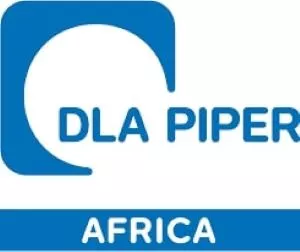EXPATRIATE EMPLOYMENT LEVY
About the EEL
The EEL is a government-mandated financial contribution that is imposed on employers in Nigeria who hire expatriate workers. The levy aims to address socio-economic considerations by striking a balance between economic growth, social equity, and workforce development within the country. The EEL project, proposed and managed by the NIS/Ministry for Internal Affairs, approved by the Federal Executive Council on May 17, 2023. It mandates employers to pay a levy for hiring expatriates, to foster the development of the local workforce and reduce dependence on foreign expertise.
Scope
The EEL applies to all employers in Nigeria in various sectors including construction, ICT, Agriculture, Oil & Gas, Telecommunication, Banking and Finance, Maritime and Shipping, and Healthcare who employ expatriates.
The EEL applies to expatriates who have been employed for a cumulative period of at least 183 days within a fiscal year. This includes those on temporary work permits engaged in seasonal or short-term employment across different companies within Nigeria. The responsibility for paying the EEL rests with the employer.
Expatriate workers are defined in the Handbook as non-citizen or non-resident employees who occupy Expatriate Quota positions (i.e. an approval by the Ministry to employ expatriates for specified roles) or are engaged on a Temporary Work Permit, a single-entry visa that is valid for sixty days (2 months) and may be extended in the country for another thirty days (1 month). A TWP is issued to applicants who intend to provide specialized services in Nigeria. These employees must be employed for a cumulative 183 days from the date of entry into Nigeria for such employment/engagement to be covered by the EEL. Therefore, short-term employment may be exempted from the EEL.
The Handbook outlines the specific circumstances under which the EEL is applicable. While it does not directly state that companies must pay the EEL for expatriate workers employed before the launch date, it imposes a penalty for failing to register expatriates within 30 days. This implies that registration is necessary for current expatriate employees. This is further confirmed by the notice issued jointly by the Ministry of Interior and the Nigerian Immigration Service ("NIS") specifies a 30-day registration period, aligning with the Handbook's provisions.
Levy
All companies in Nigeria who employ expatriates are required to pay the EEL. Employers of expatriates must pay the annual EEL of USD15,000 for each director in the organisation and USD10,000 for other categories of expatriates who are employed and stay in Nigeria for a cumulative period of 183 days or more within a fiscal year.
Exemptions
The EEL payment does not apply to all accredited staff of diplomatic missions and government officials. It also does not apply to expatriates under short-term employment i.e less than 183 days in one fiscal year.
Responsibilities
The Handbook details the responsibilities of the government, employers, and expatriates. The government and its agencies will be responsible for providing the online portal for facilitating the payment of the levy, the enforcement of the EEL and it may carry out audits and crosscheck the information provided by the employer.
The employers are required to maintain accurate records, timely reporting of expatriates' information and any changes and meet up with the deadlines for payment. Employers may also consider in-house training for their employees in Human Resources and payroll. The expatriate employees must ensure that they provide accurate information to employers and the government to assist the employers in fulfilling their obligations.
Enforcement
The NIS is the primary government agency that is responsible for the implementation and enforcement of the EEL. The NIS has the responsibility for the following:
- Determining those expatriates who are covered by the EEL.
- Enforce the payment of the EEL in line with the Immigration Act 2015 and other applicable laws and regulations.
- Use the data generated from the EEL project for the enhancement of national security and economic development.
The EEL was expected to be in force from 15 March 2024. However, on 8 March 2024, the Federal Government announced a suspension of the proposed policy implementation subject to further engagements with stakeholders.
Penalties/Sanctions
By virtue of Section 56 (5) of the Immigration Act, 2015, any person (individual or corporate entity) who makes or causes to be made to an immigration officer, any return, statement, or representation which he knows to be false or does not believe to be true shall be liable to imprisonment for a term of five years or a fine of N1,000,000 or both.
The Handbook provides for the following sanctions and penalties as outlined in Regulation 52(6) of the Immigration Regulations, 2017:
- Failure to file the application for EEL within 30 days attracts a fine of Three Million Naira (N3,000,000).
- Failure to register new employees within 30 days attracts a fine of Three Million Naira (N3,000,000).
- Falsification of information on EEL application attracts a fine of Three Million Naira (N3,000,000).
- Failure to renew EEL (registration/approval of particular expatriate or director(?) within 30 days attracts a fine of Three Million Naira (N3,000,000).
Conclusion
The introduction of the EEL is seen as a potential incentive for employers to invest in local talent development. Although the implementation has been temporarily suspended for more stakeholder engagement following employers outcry, it signals the current government's intention to control and manage the engagement of expatriates in view of the general public perception of the displacement of local workforce through the abuse of the expatriate work permit system. Employers are advised to take note of this new policy and review their employment policies and manpower requirements during the period of the suspension with a view to positioning for compliance when implementation kicks off. Our view is that considering the prevalence of the abuse of the expatriate quota system and the considerable resources the NIS has expended on the EEL (program), implementation is a matter of when, not if.
There are admittedly some grey areas in the implementation of the EEL such as whether the payment is due when the expatriate is employed or after staying in Nigeria for 183 days. It is expected that more details on the implementation will be released by the Ministry of Interior and NIS in the coming days and weeks. In addition, there are indications that there will be consultations with stakeholders which should clarify some of the grey areas before the EEL is implemented.
It is also important to note that the EEL also adds to the employer's expenses as employers currently bear costs related to expatriate engagement, such as expatriate quota and visa fees. Employers also have the responsibility of maintaining comprehensive records of expatriate employees. They are to provide updated information to government agencies within specified timeframes, promptly notify the government agencies of any changes in expatriate employment circumstances and provide adequate trainings to HR and Payroll teams to ensure they are adequately informed about the EEL reporting requirements and compliance measures.
Further updates will be provided as the government continues with stakeholder engagements, possibly revising the regulation and reviewing its implementation.
The content of this article is intended to provide a general guide to the subject matter. Specialist advice should be sought about your specific circumstances.




